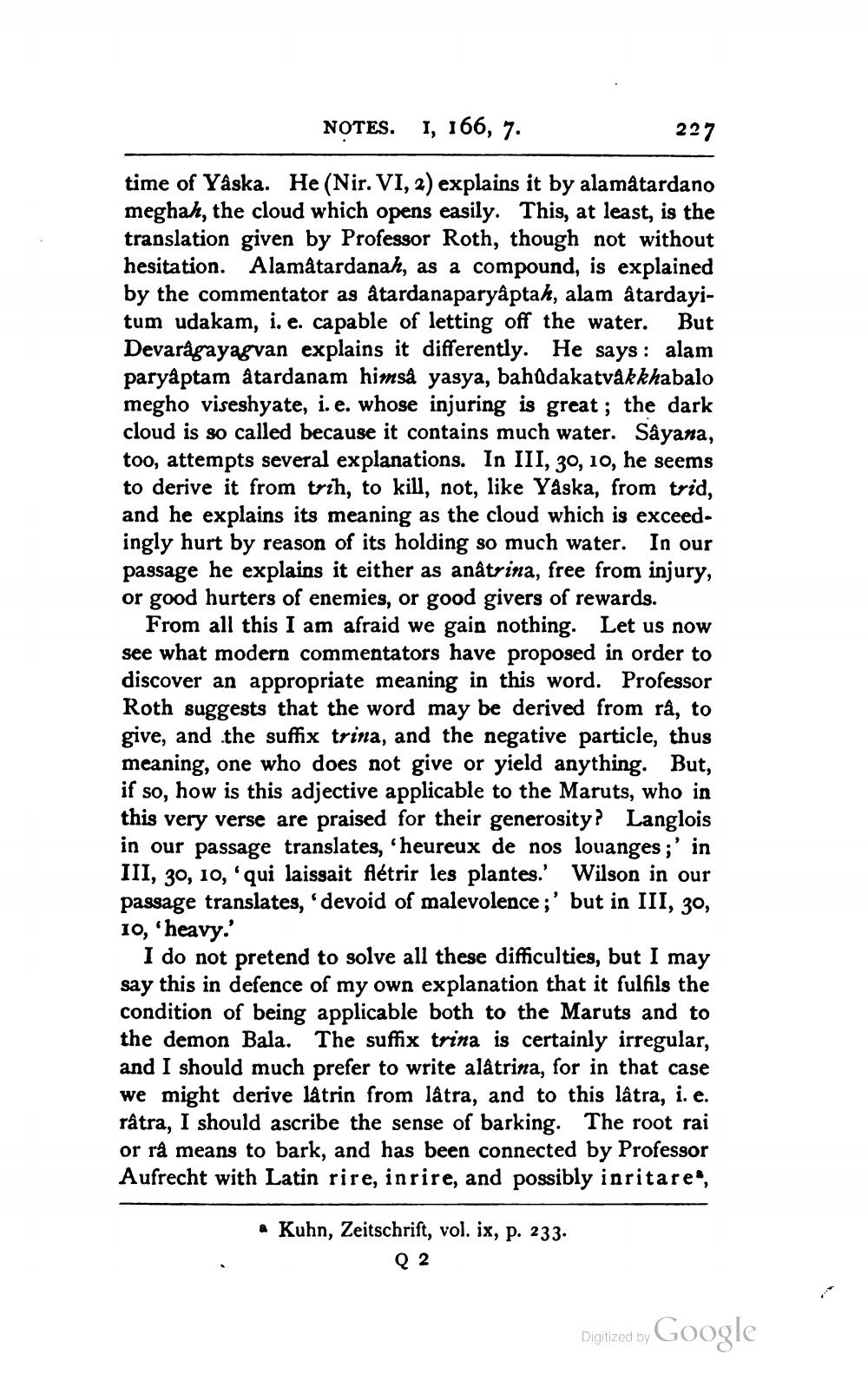________________
NOTES. I, 166, 7.
227
time of Yaska. He (Nir. VI, 2) explains it by alamâtardano meghah, the cloud which opens easily. This, at least, is the translation given by Professor Roth, though not without hesitation. Alamâtardanah, as a compound, is explained by the commentator as atardanaparyâptah, alam âtardayitum udakam, i. e. capable of letting off the water. But Devarágayagvan explains it differently. He says : alam paryâptam atardanam himså yasya, bahůdakatvakkhabalo megho viseshyate, i. e. whose injuring is great; the dark cloud is so called because it contains much water. Sâyana, too, attempts several explanations. In III, 30, 10, he seems to derive it from trih, to kill, not, like Yåska, from trid, and he explains its meaning as the cloud which is exceedingly hurt by reason of its holding so much water. In our passage he explains it either as anåtrina, free from injury, or good hurters of enemies, or good givers of rewards.
From all this I am afraid we gain nothing. Let us now see what modern commentators have proposed in order to discover an appropriate meaning in this word. Professor Roth suggests that the word may be derived from rå, to give, and the suffix trina, and the negative particle, thus meaning, one who does not give or yield anything. But, if so, how is this adjective applicable to the Maruts, who in this very verse are praised for their generosity: Langlois in our passage translates, 'heureux de nos louanges;' in III, 30, 10, 'qui laissait Alétrir les plantes.' Wilson in our passage translates, 'devoid of malevolence;' but in III, 30, 10, 'heavy.'
I do not pretend to solve all these difficulties, but I may say this in defence of my own explanation that it fulfils the condition of being applicable both to the Maruts and to the demon Bala. The suffix trina is certainly irregular, and I should much prefer to write alâtrina, for in that case we might derive latrin from låtra, and to this lâtra, i.e. râtra, I should ascribe the sense of barking. The root rai or rå means to bark, and has been connected by Professor Aufrecht with Latin rire, inrire, and possibly inritare",
a Kuhn, Zeitschrift, vol. ix, p. 233.
Q 2
Digitized by
Digized by Google




